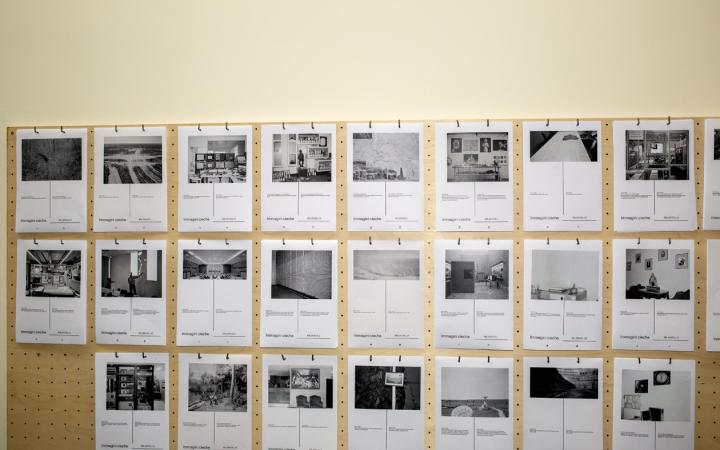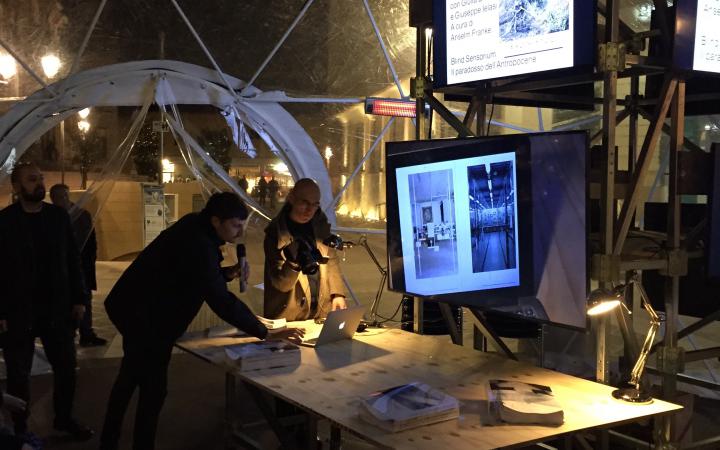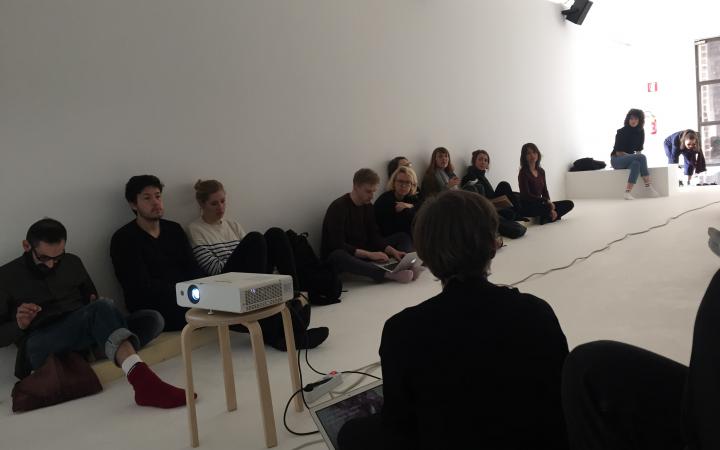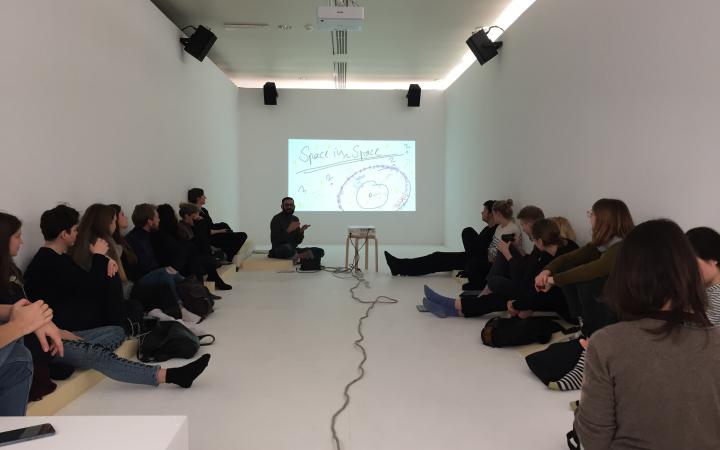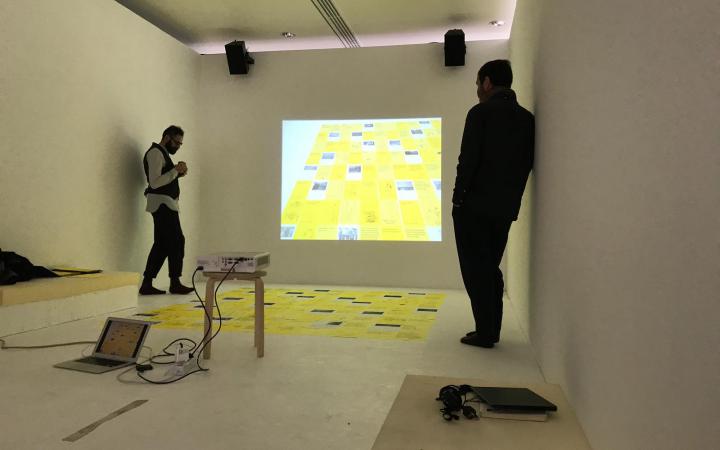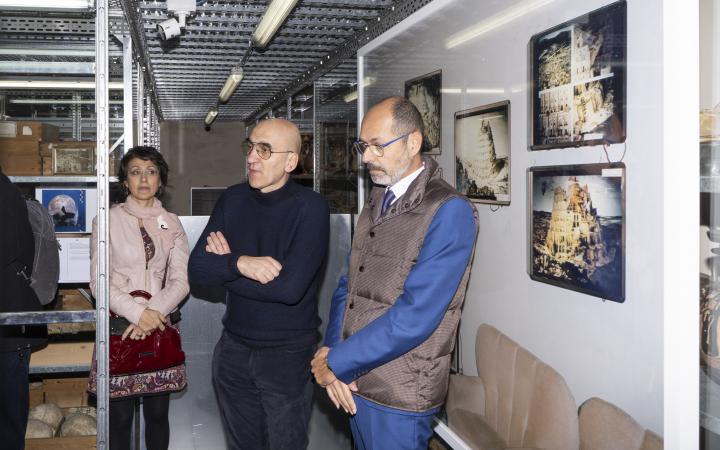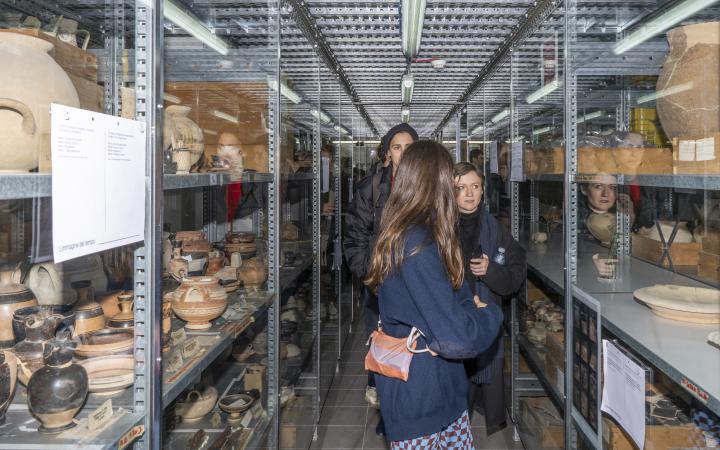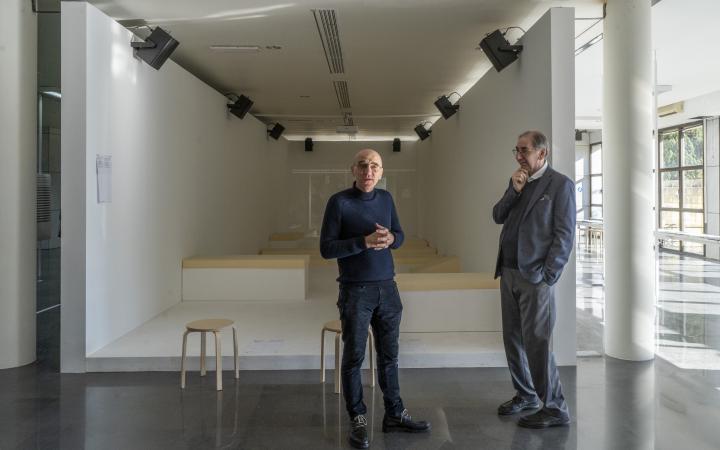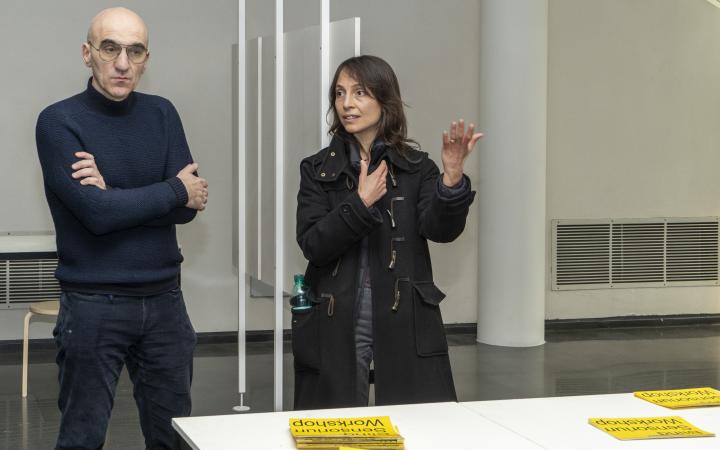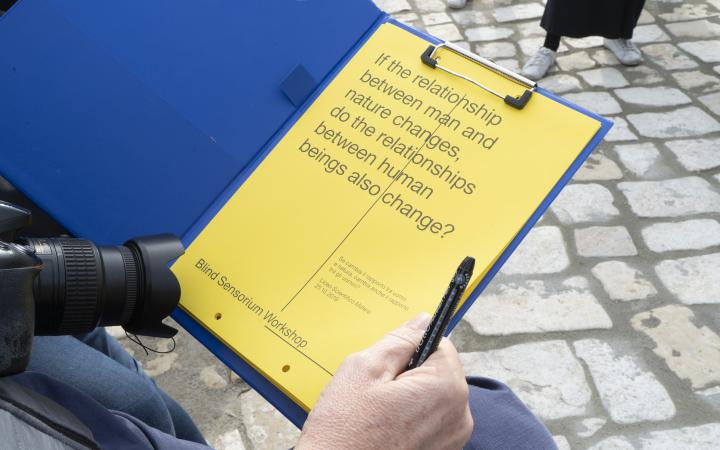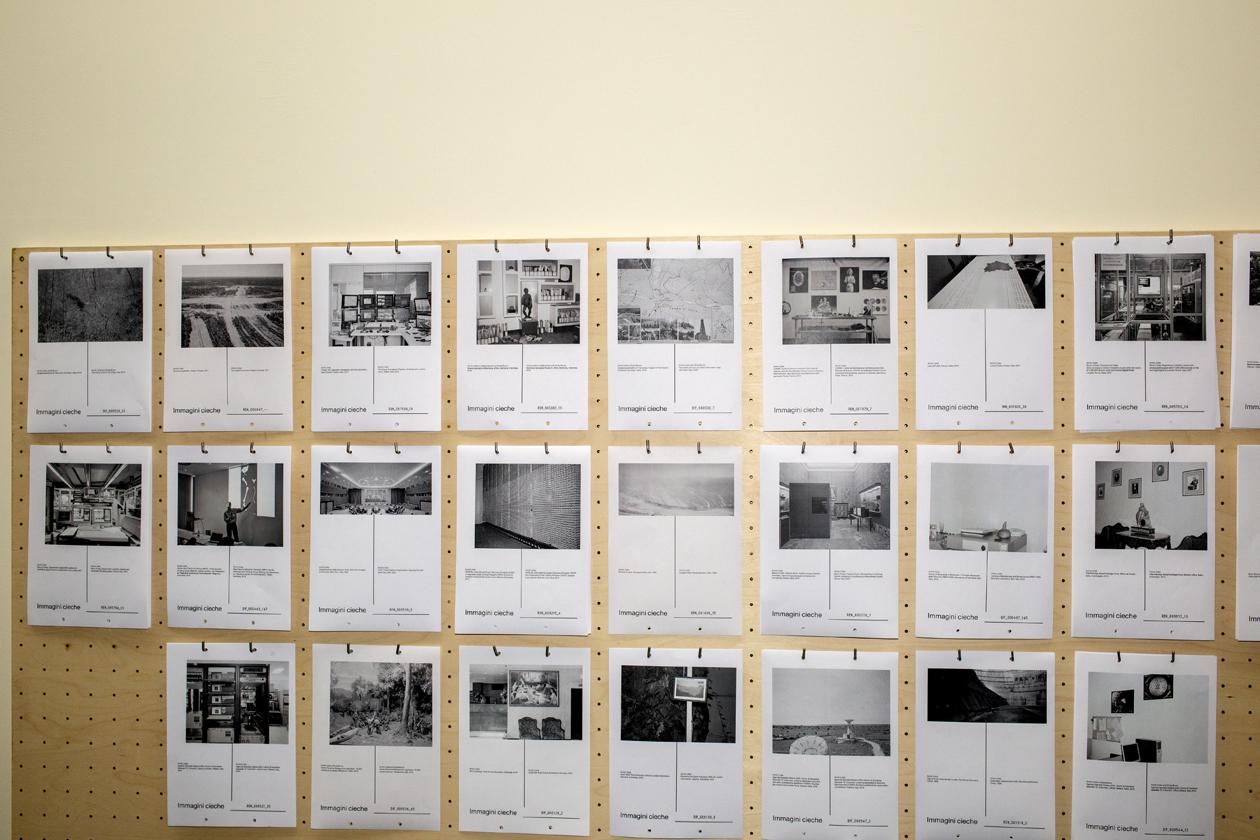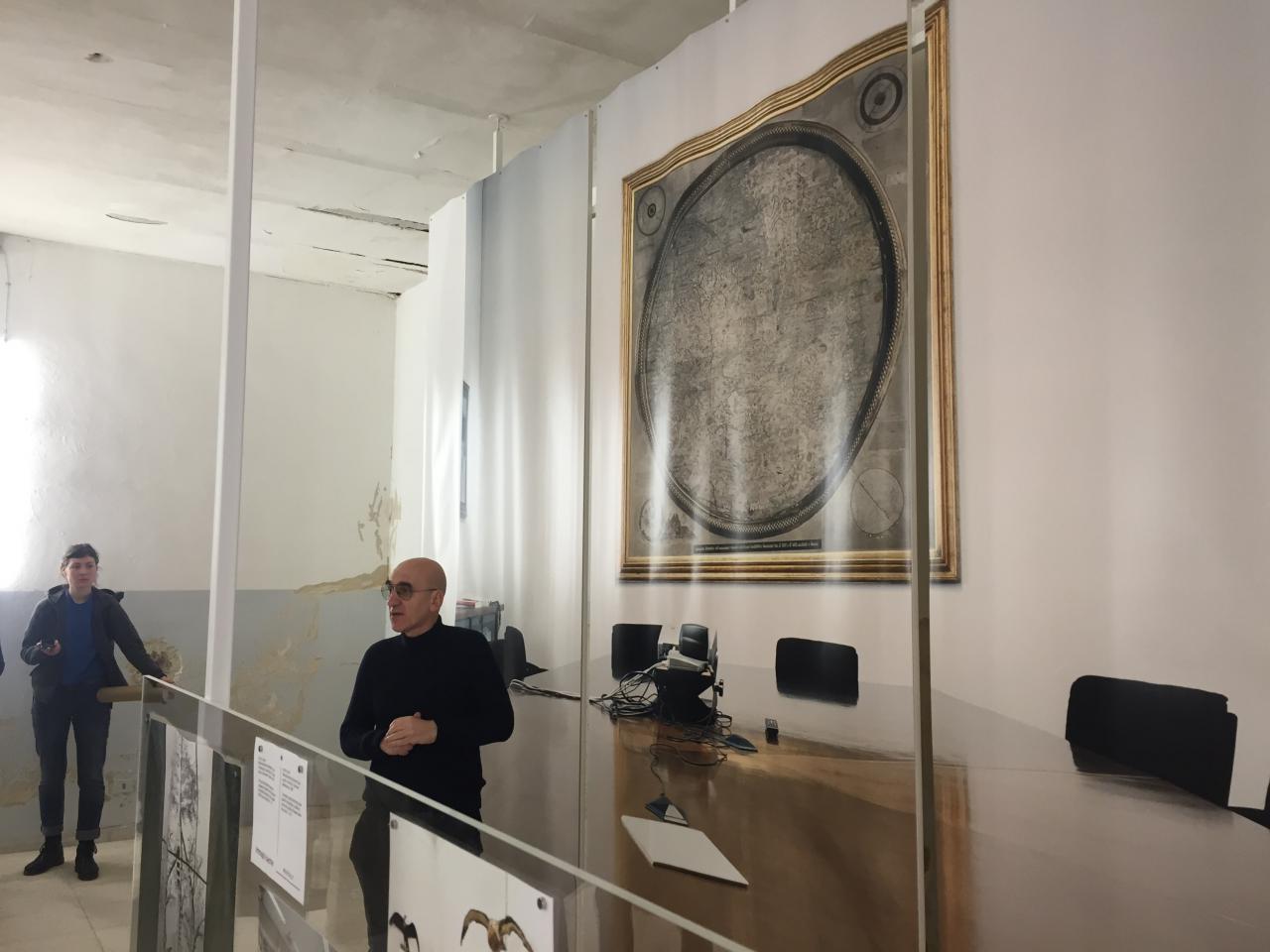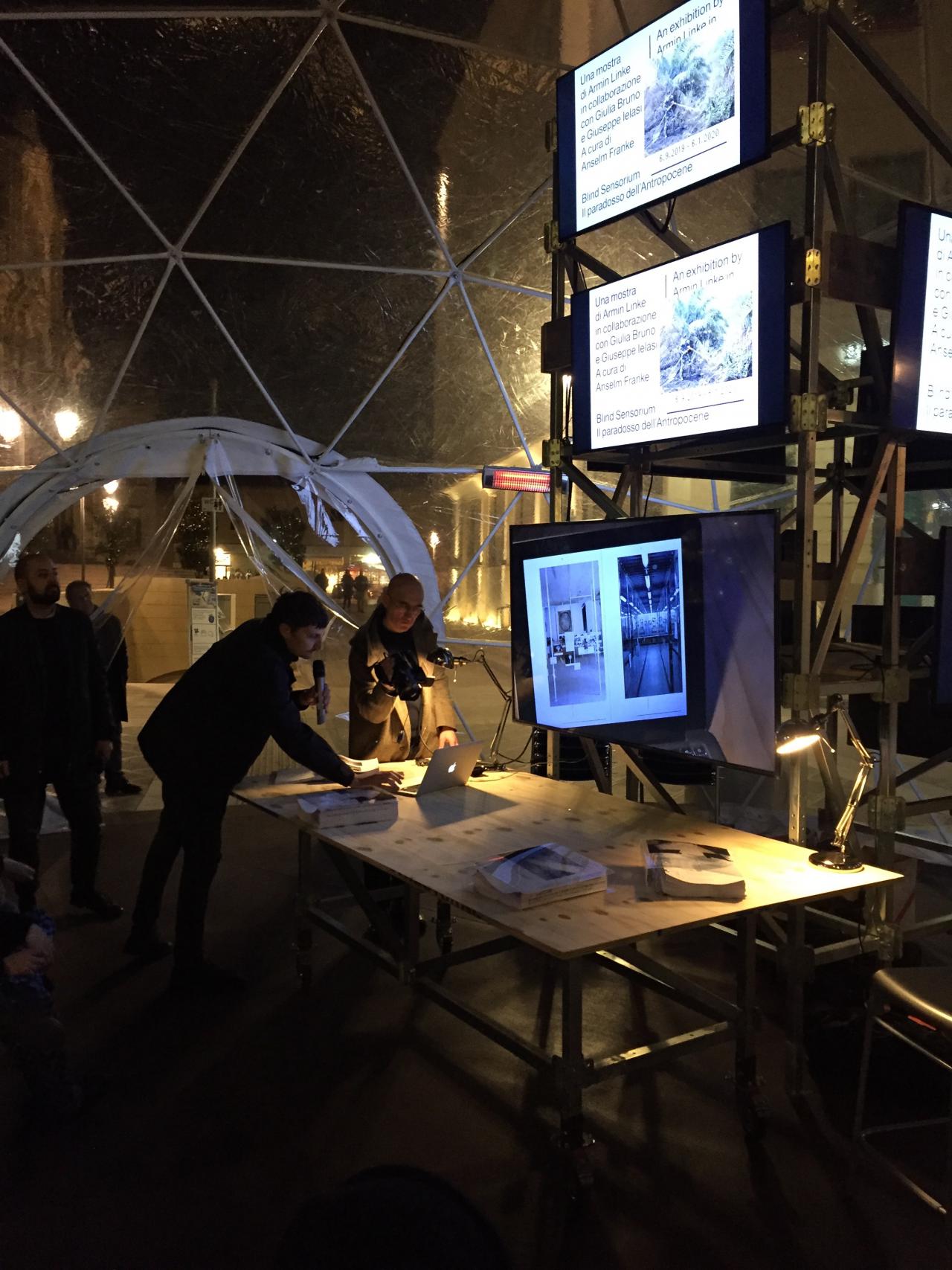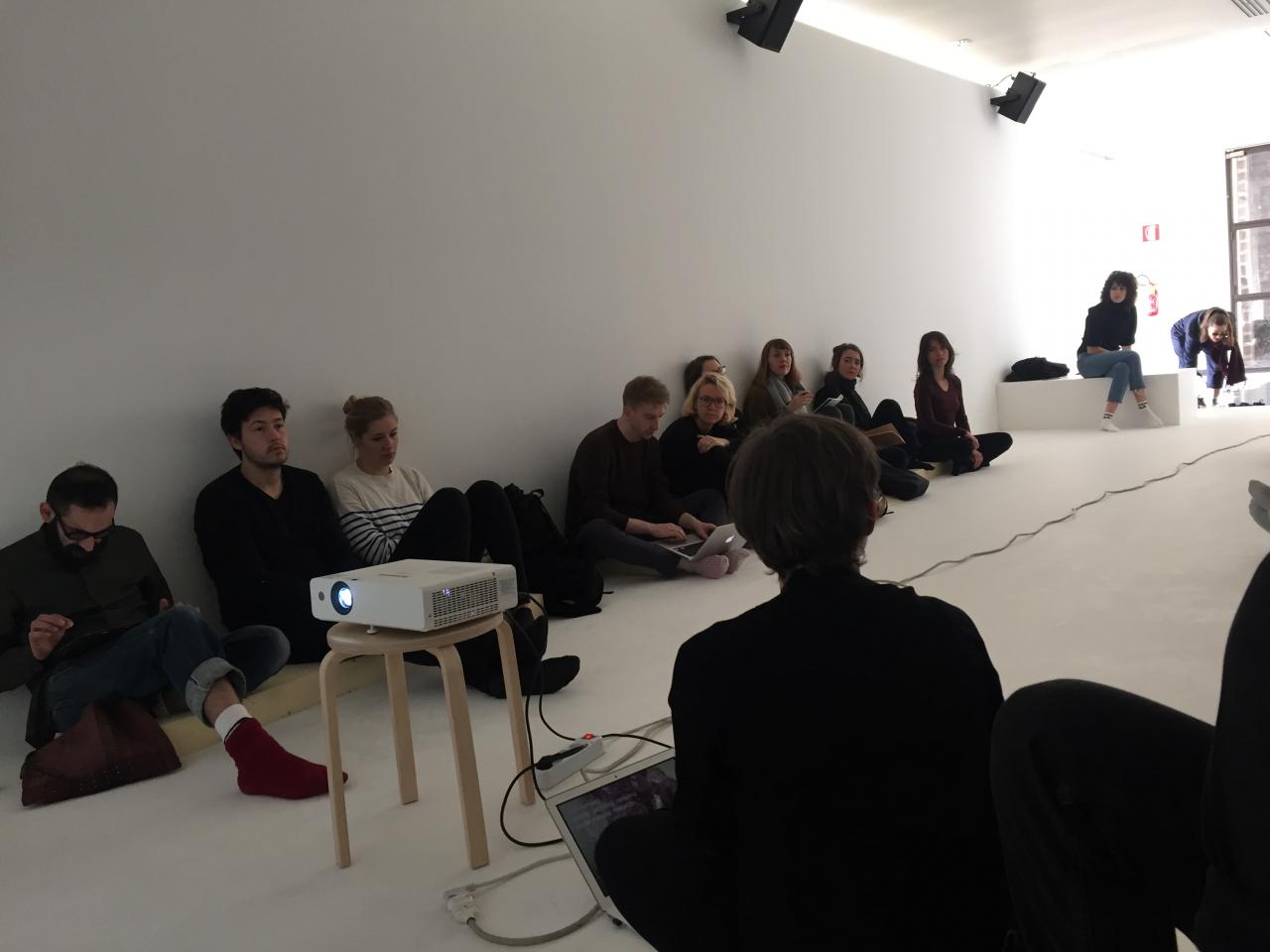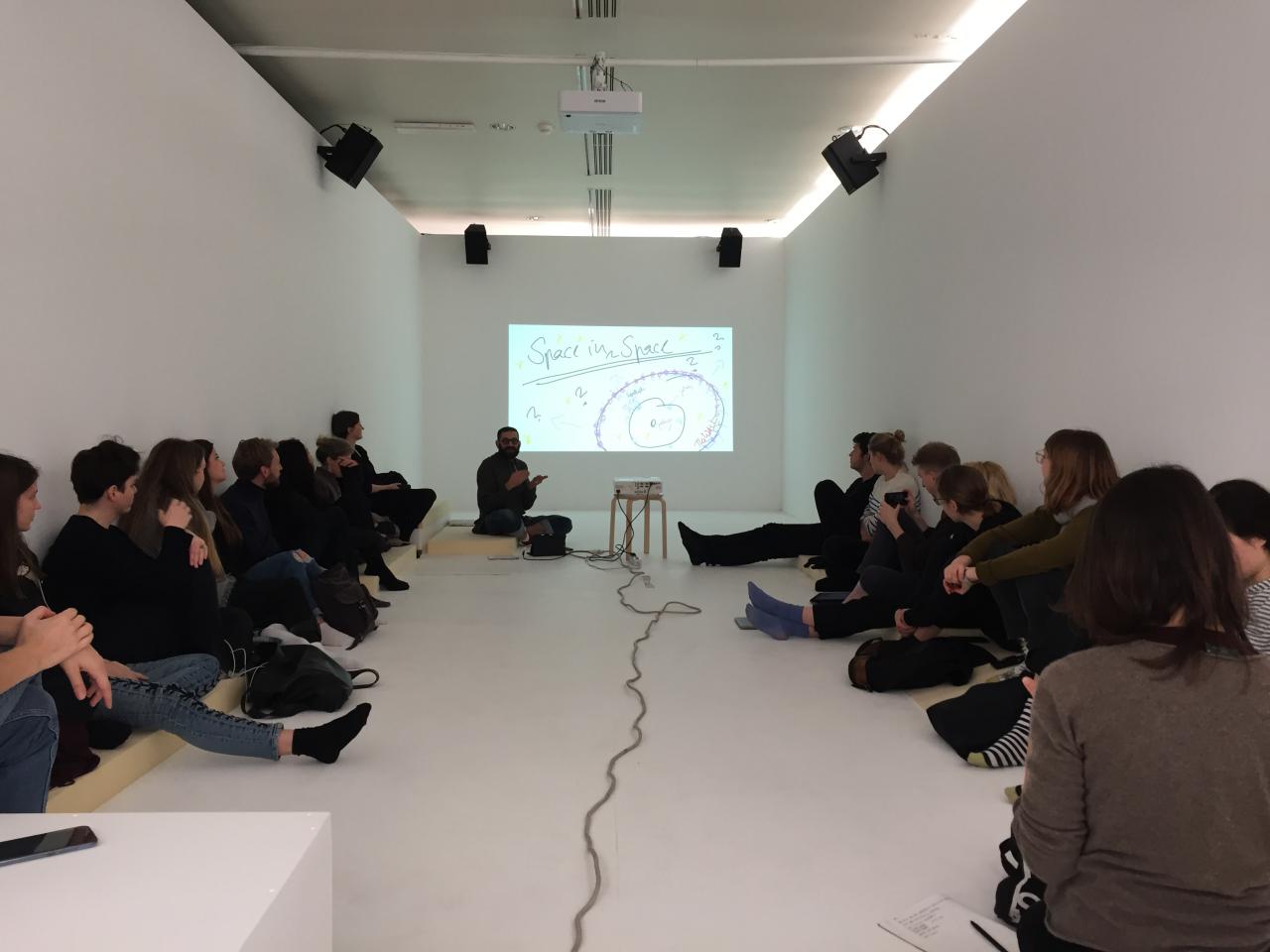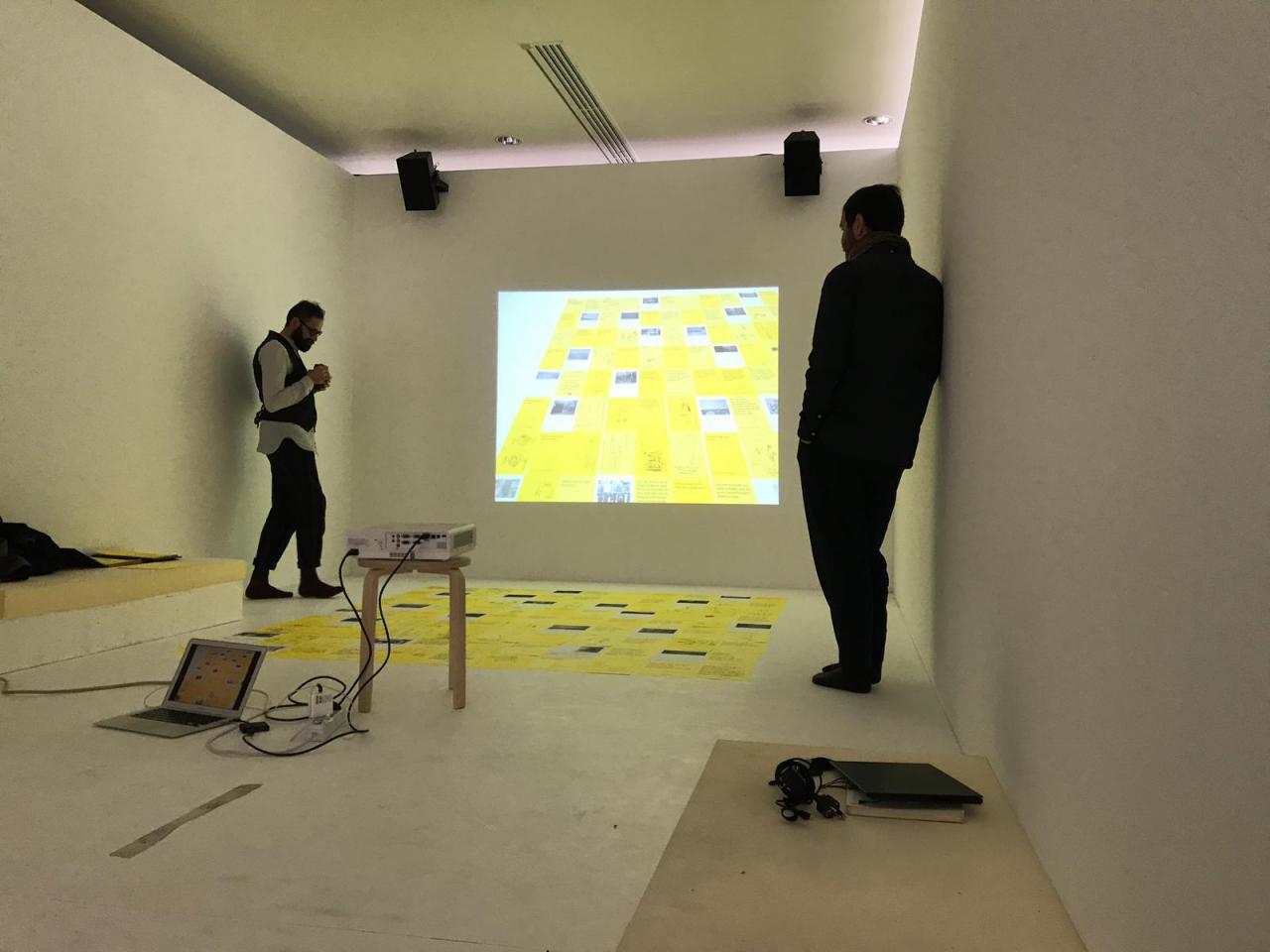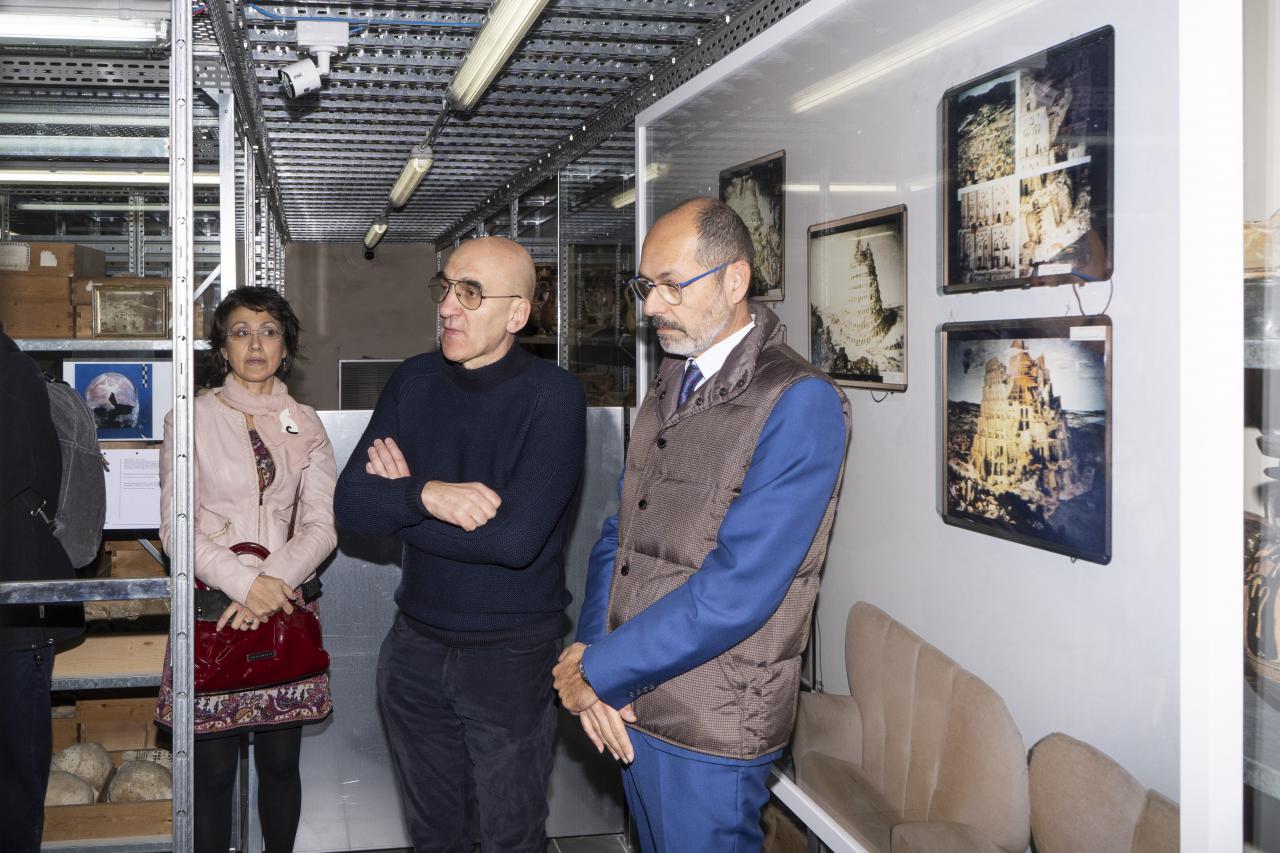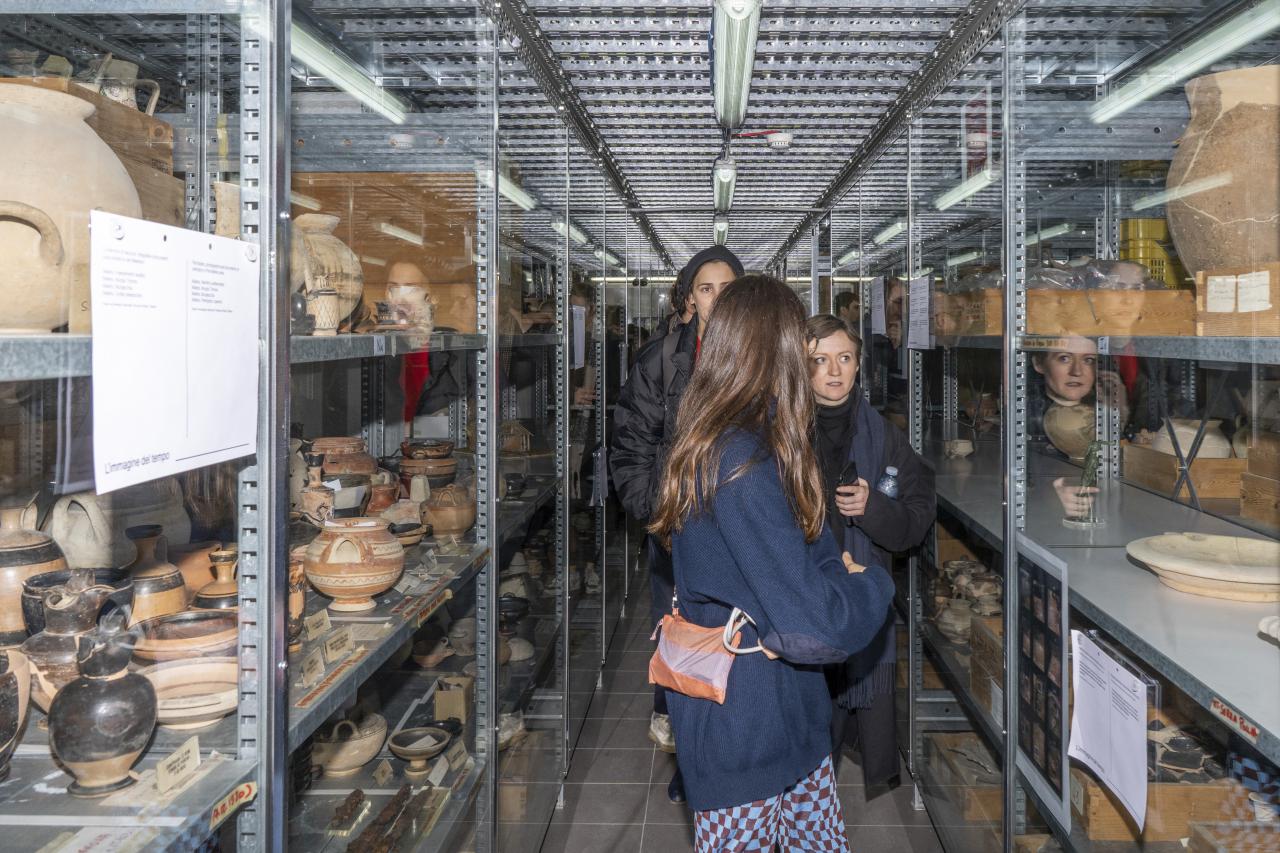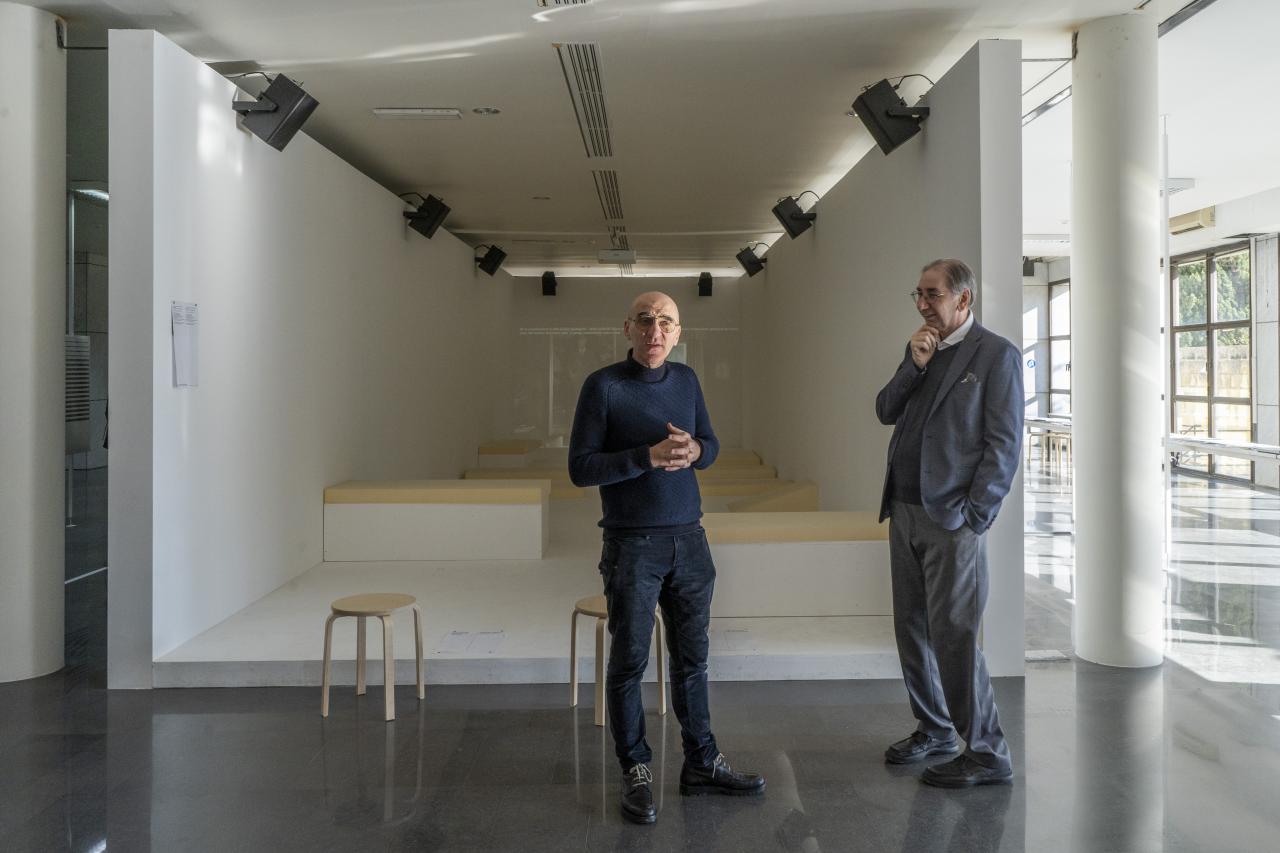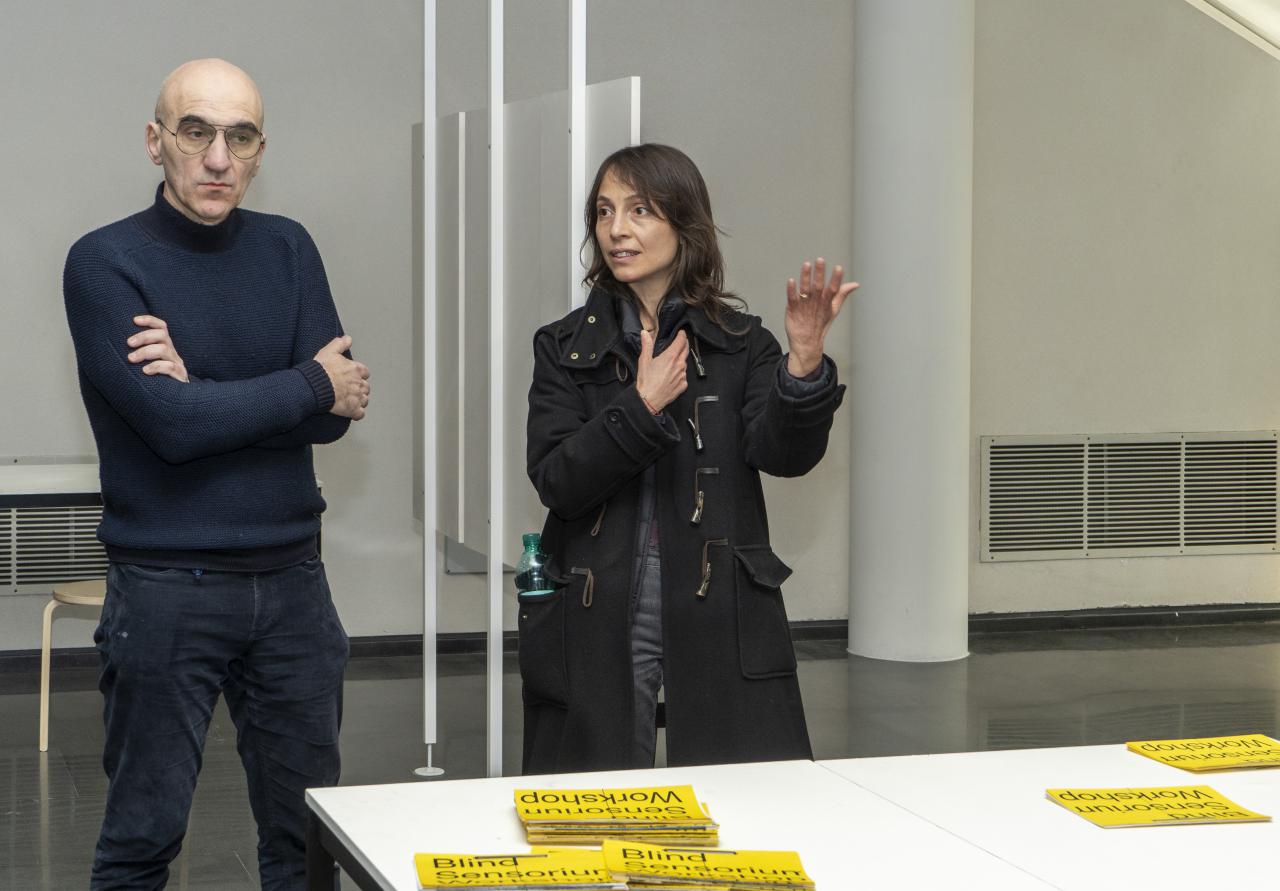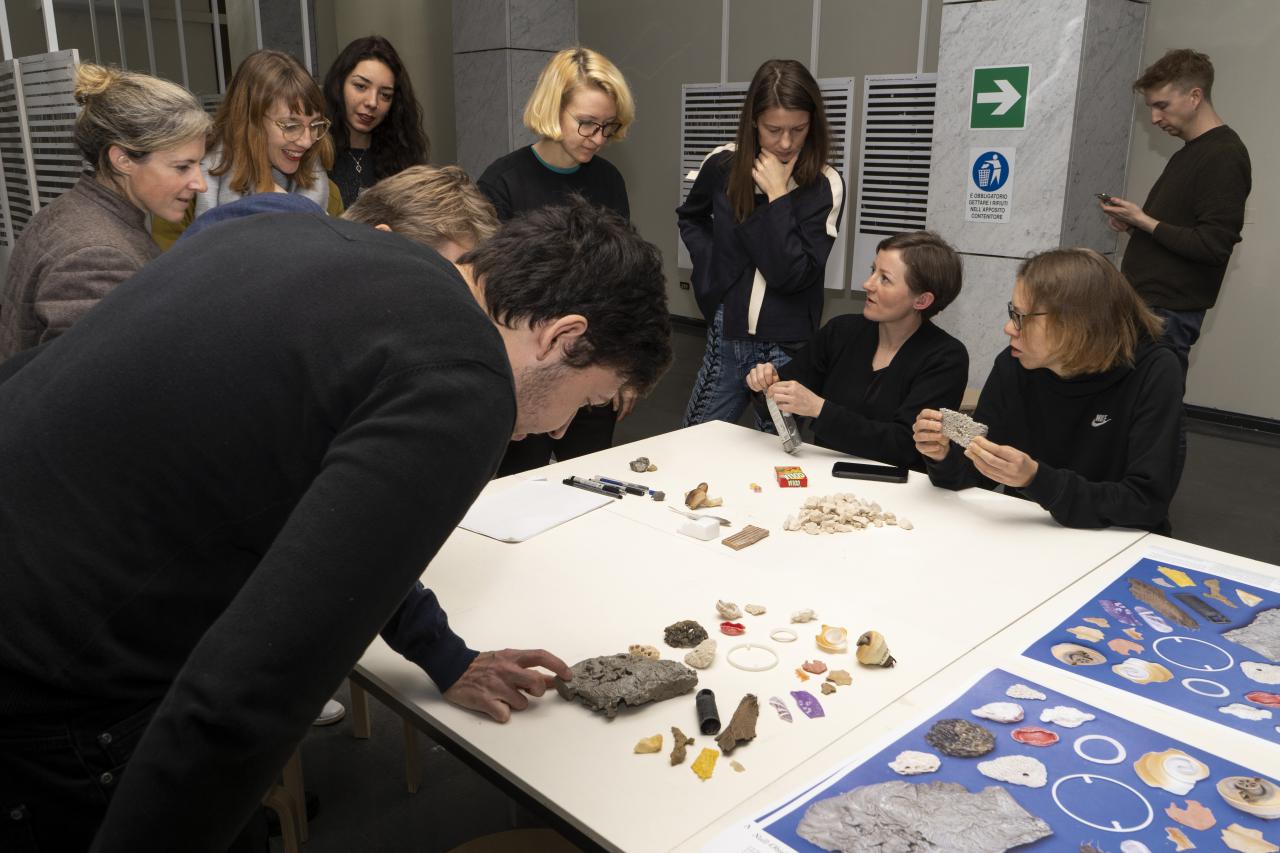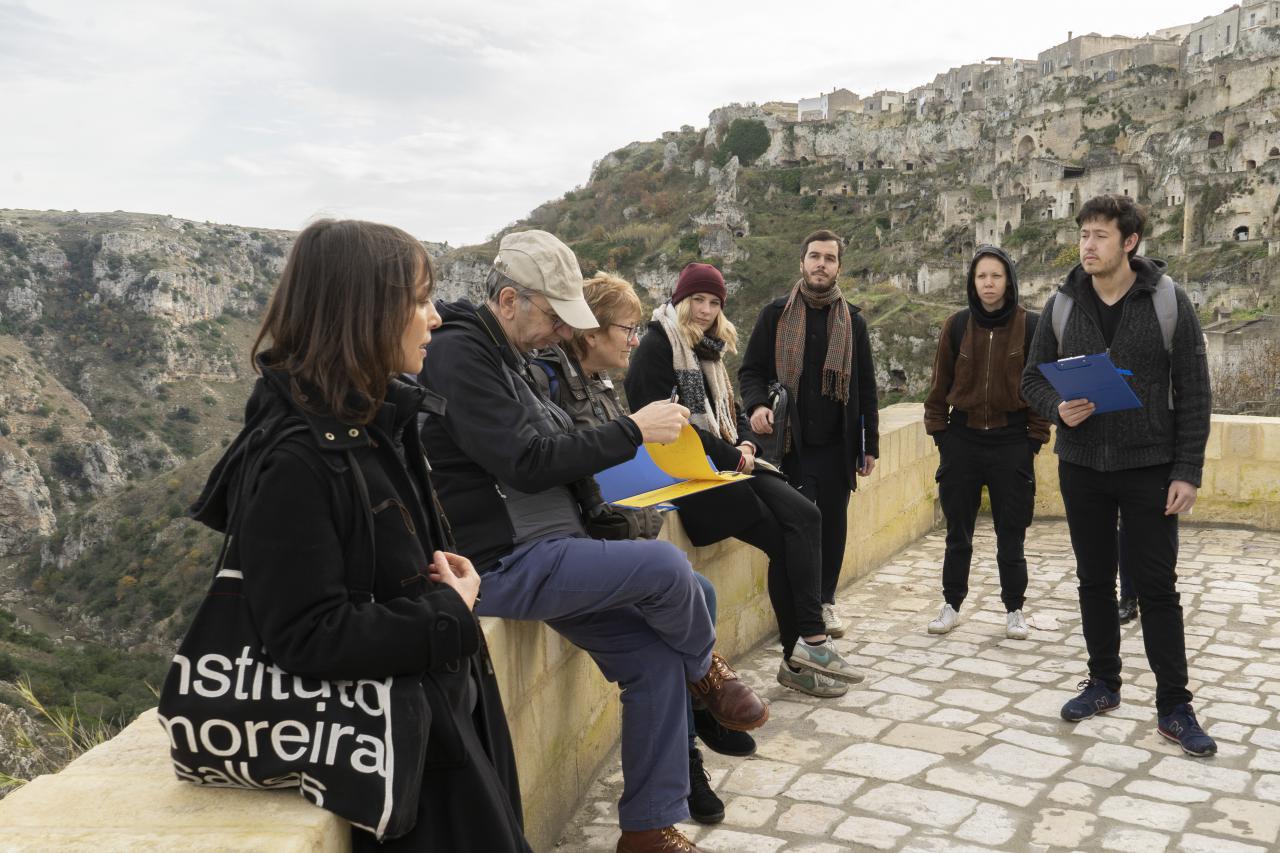Critical Zones research group x Armin Linke
Blind Sensorium. Il paradosso dell’Antropocene
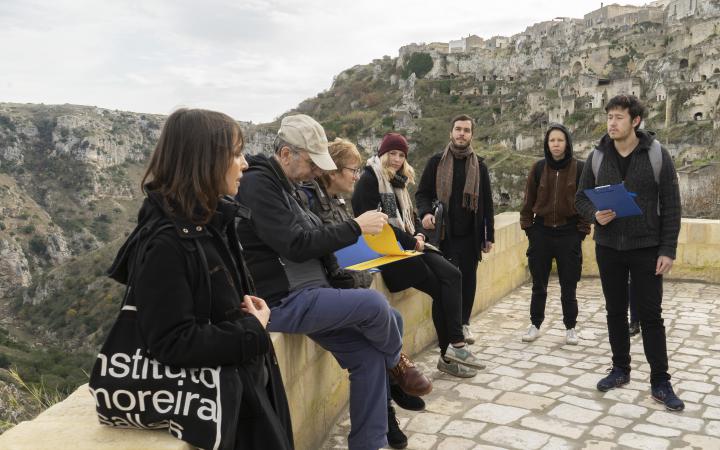
During December 7–10, 2020, participants of the »Critical Zones« research seminar at Karlsruhe University Arts and Design visited Matera in Italy, one of the two 2019 European Capitals of Culture (along with Plovdiv in Bulgaria).
Following an invitation by the artist Armin Linke, the researchers set up their camp in the exhibition Blind Sensorium. Il paradosso dell’Antropocene to discuss, in lectures and workshops, aesthetic strategies for making graspable the shifts in our relationship to an Earth whose ecosystems are heavily influenced by humankind’s blunt exploitation.
Organized by Armin Linke, in collaboration with Giulia Bruno and Giuseppe Ielasi, and curated together with Anselm Franke, Blind Sensorium. Il paradosso dell’Antropocene inhabited the deposits of the Museo Archeologico Nazionale Domenico Ridola and the abandoned building of the former school Alessandro Volta in Matera between September 6, 2019 and January 6, 2020. The choice of location – in the midst of the collection of an archaeological museum and in a former school for the poorer groups of the city’s citizens – reflected the complex interdependence of »The New Climate Regime« (a term coined by Bruno Latour): The current climate crisis is not only a question of ecology on the one side and of politics on the other. Rather, the effects and implications of climate change now disrupt nearly all fields of society, including those institutions which produce and distribute knowledge in science and education.
Emphasizing these complex relations which are mapped in the exhibition, the art journal e-flux provides a precise description of Armin Linke’s artistic investigation: »Blind Sensorium. Il Paradosso dell’Antropocene« is the culmination of ten years’ artistic inquiry by photographer and filmmaker Armin Linke and collaborators into the forces that change the face of the Earth. That the Earth’s surface is undergoing radical changes is visible to the naked eye. And yet, we see only the smallest fraction of these changes. Most of the Anthropocene—our present era in which human impact on the Earth has pushed the planet to the brink of climate change—remains invisible, even in its material processes. Knowledge of these radical changes to the Earth system is gathered mostly not through our own senses, but through vast technological infrastructures and the data they collect. Yet the knowledge generated by this technological sensorium is characterized by the blind spots of its own implication in the accelerated exploitation of nature. Armin Linke has followed scientists, politicians, and activists as he interrogates the conflictual and indeed often paradoxical relationship between science, economy, and political institutions. Blind Sensorium is a visual anthropology of the conflicted role human beings and modern capitalist societies play in the current planetary transformation.
The workshops and lectures hold during December 7–10 brought together such diverse topics like the geological profile of the Anthropocene, the manifold symbioses between animals and microbes, or the narratives of Star Trek as an aid to freshly encounter our own living conditions on Earth. They were delivered by Colin Waters (Anthropocene Working Group), Lilo Viehweg (Bauhaus Dessau Foundation), xtro relam (artist collective, Budapest), Dennis Pohl & Hananh Knoop (Karlsruhe Institute of Technology, Department of Architecture), Studio Òbelo (studio for visual research, Milan) and by participants of the Critical Zone research group: Francesca Romana Audretsch, Ali Gharib, Bilge Hasdemir, Daniel Irrgang, Hanna Jurisch, Bettina Korintenberg, Olga Lukyanova, Robert Preusse, Stefanie Rau, Anne Schreiber.
www.matera-basilicata2019.it
